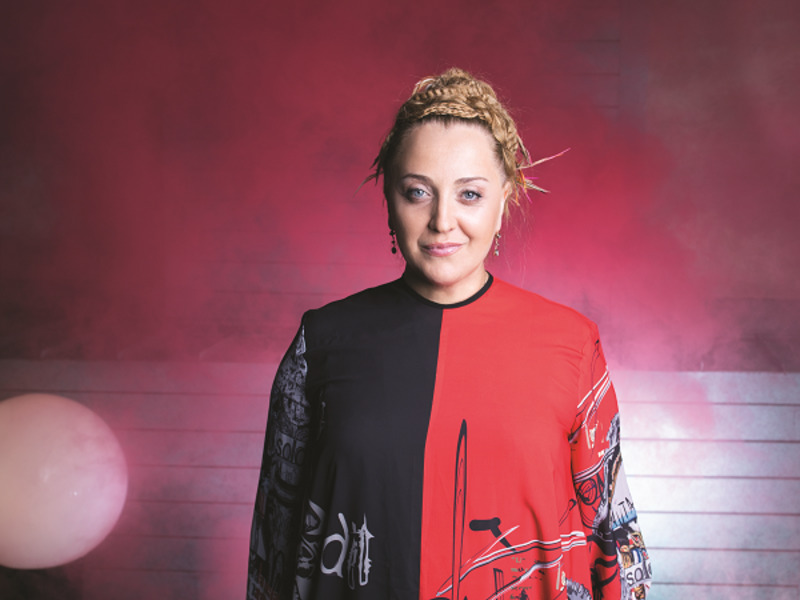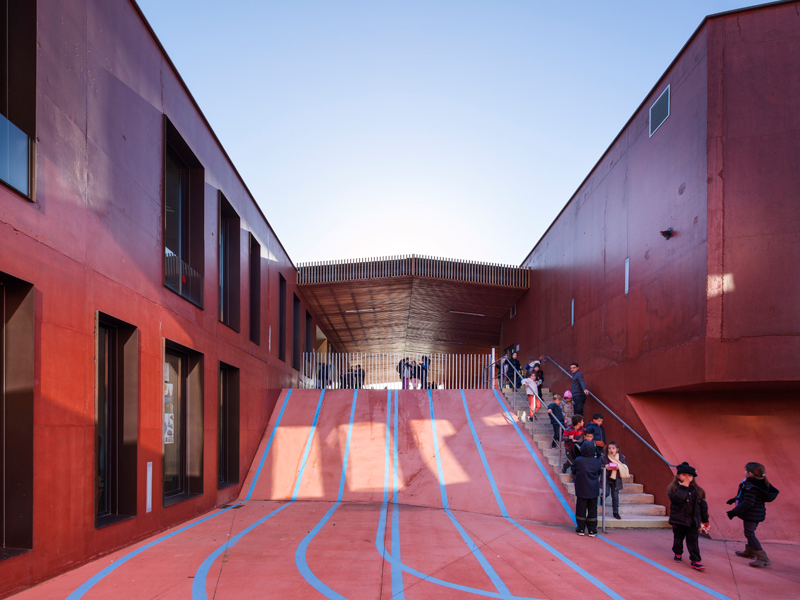
Nino Katamadze: Art Of Turning Your Momentum Into Something Tangible
— Black, White, Red, Yellow, Blue, Green. Why did you give such titles to your albums?
— I believe, that the less words you use the more thoughts you can deliver with them. When we recorded our first double album in Georgia, it was titled "Nino Katamadze and INSIGHT" and its cover was black and white. It was then that I thought, why not to title our following albums in a similar way. The idea with colours was accepted unanimously. Compositions we create together we are giving titles that resonate with their overall sound and mood. For instance, the Blue is an orchestral album. Accordingly, the album title is the continuation of its sound in colour.
— If it weren't for the INSIGHT, what would you be in life?
— I do not know, because in case of the INSIGHT, it is not the sound and temperament that we create together that is important. It is more the human testament of loyalty to the music and traditions. Perhaps my work could have been merrier and even varied. But I have never looked for easy ways, on the contrary. It's even difficult for those people with whom for 20 years I have been creating sound history. They can agree with me or disagree, but it is always an extremely exciting process that we live through together.
— Are they like your family now?
— Even closer. At least they see me more often than my own family. They are there with me in my most precious moments of life: my birthdays or when I am on edge, or when it hurts – they share with me my successes and my downfalls.
— How did your story with INSIGHT start?
— When you live in a small city, you are looking for, so to say, something that would resonate with you. Or if you have favourite streets, you do want to have the address where you could come and relax, free your soul and tune in with that harmony. That's what happened with INSIGHT and me. They turned out to be those very people who were creating parallel realities in my life, and I adored and was enjoying even listening to the silence together with them. And it is still like that today.

— What are you working on these days?
— Well, we do not know how to work. To tell you the truth, our albums quite literally identify the word INSIGHT — it is enlightenment, epiphany, realisation, etc. We never can make it better than when the emotion was captured for the first time. This first joint emotion is so clear to us, it is so alive. We can work on something for a long time and it would not come right, but then one chord can strike and launch a completely new story.
— Can you name the main quality an artistic person should have...
— He/she should be free. And freedom stands for the calmness and answers to the steps taken. It's a natural and holistic state. Everything that happens within yourself is consciously acknowledged by you. And when you let your thoughts go down to the basics, there will right away be those who will follow you. I believe that this is a real art of turning your momentum into something tangible. It's a great luck that we have quite a bit of such free-thinking and creative people around us. If you turn on the Artarea channel (the only Georgian TV art channel www.artarea.ge), you will see young people aiming all their efforts on the development of music and culture as such.
— And what is culture for Georgia, how do you think?
— Culture is the heartbeat of Georgia. We have so much where we can show our true selves – our past, present and the future. But for the development of culture, first and foremost, it is our legislations that has to be changed, the foundations have to be created that would be securely funded from the state budget.
— You are a real cultural brand of Georgia abroad. How do you feel in these shoes?
— Georgian music is represented by folk, authentic and classical music. Everything what have been created before the digital era. Poetry here plays utmost important role with its phonetics, and it is through the folklore and poetry that our music became so idiosyncratic. What I aspire to do is to demonstrate synthesis of the old and the new. I dream for each of our concerts to go with subtitles of the translated texts we use in our works. These are the texts by Otar Chiladze, Vazha-Pshavel, Nato Ingorokva and other outstanding poets. It would be so important to reveal this side of our work. Unfortunately, it is quite difficult to implement this idea technically and financially.

— Do you stress out on the day of your concert?
— I do, a lot. Well, when on concert is over and I know that the next one is about to take place soon I start to stress out again. To tell you the truth, it all comes back to myself, as it is important for me what I will tell my audience. The preparations to a concert bring me back to myself. It is similar to tuning your piano, when you tune your notes to yourself, to the story of your life.
— I'd like to ask you something about your dresses...
— My dresses are the result of my shapes. Moreover, the stage doesn't like all things, you have to fit it. My dresses are by designers Datuna Sulikashvili, Avtandil Tskvitinidze and Liudmila Smirnova. I trust those who create my stage costumes. My "I" vanishes, when I dive into the music, that is why the dress, lights and the visual part of the stage is such a vital importance. Everything should be perfect. You wouldn't believe how much I am into the technical side of the concerts. I even know the sound models I will need. At the same time I do not speak managerial language at all. Or it's better to say that I do not want to get into that area, because it will still a lot of other colors from my life.
— What would you wish yourself for the coming year?
— Perhaps, for concerts and the meeting with music to bring people only happy moments, and not turning into an opportunity to escape their problems. I would love for us all to be ready to openly accept each other the way we are. The way we really are. You know, it is for this very reason that I love classical music, because within these seemingly strict frameworks the unlimited freedom prevails – in every note and a pause. The most important is hidden in the punctuations. I talk about the freedom. And I am not free in my country, unfortunately. And when I want to protest against many inequalities and I think how to do it, then I understand that my language is music. O choose it again and again.




